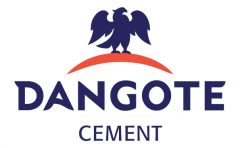
The National Bureau of Statistics (NBS), on Thursday announced that Nigeria’s consumer price index (CPI), which measures inflation, climbed 12.34% up year-on-year in the month of April 2020.
The 0.08% points increase over the 12.26% rate recorded in March 2020, it noted, was once again propelled by the composite food index, which rose by 15.03%, compared to 14.98% in the preceding month.
On a month-on-month basis, Headline inflation index increased by 1.02% in April 2020, as against 0.84% in March, just as MoM growth in the food sub-index grew by 1.18% in April from 0.94%.
The rise in the food index was linked to “increases in prices of Potatoes, Yam and other tubers, Bread and cereals, Fish, Oils and fats, Meat, Fruits and Vegetables,” within the period under review.
Urban inflation index stood at 12.26%, up from 12.15% reported in March 2020, while the corresponding rural inflation rate in April 2020 increased to 11.20% compared to 11.14% recorded in March 2020.
On a month-on-month basis, the urban index rose by 1.06% in April 2020, compared to 0.88% in March 2020, while it increased by 13.01% year-on-year in April 2020 from 12.93%, while the rural inflation rate increased by 11.73% in April 2020 from 11.64% in the prior month.
The core sub-index increased by 0.93% in April 2020, up by 0.13% when compared with 0.8% recorded in March 2020; just as the ”All items less farm produce” or Core inflation, which excludes the prices of volatile agricultural produce stood at 9.98%, compared to 9.73% recorded in March 2020.
On a state-by-state basis, inflation rate year-on-year was at its peak in Bauchi, where it stood at 14.44%, ahead of the 13.99% reported in Sokoto, while Plateau recorded 13.68%.
It was slowest in Kwara at 8.98%; while Abuja followed with 10.81%; and Edo 10.87%.
On month on month however, all items inflation was highest in Akwa Ibom, 2.01%; Oyo, 1.91%; and Abia, 1.81%.
“Edo, Enugu and Bayelsa recorded price deflation or negative inflation (general decrease in the general price level or negative inflation rate),” the NBS reported.
Also in April 2020, food inflation YoY basis was highest in Sokoto, 17.88%; Akwa Ibom, 17.55%; and Abuja, 17.65%; while Enugu, with 12.89% recorded the slowest rise; followed by Edo, 12.90%; Ebonyi, 13.04%.
MoM, April 2020 food inflation was highest in Akwa Ibom, 2.65%; Lagos, 2.49%; and Oyo, 2.33%; “while Bayelsa, Ebonyi and Enugu recorded price deflation or negative inflation (general decrease in the general price level of food or a negative food inflation rate).”















